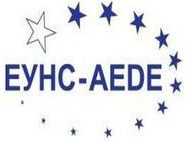The online school in Europe:
just a response to the emergency or
the beginning of a new phase for education?
Silvano Marseglia
At the end of February, we were out of the woods and suddenly found ourselves in a health emergency. It was an unthinkable and completely exceptional situation. To prevent the spread of the virus, it was necessary to close the schools, preventing face-to-face activity.
Teachers and students were involved in distance learning that had not been tested or organized before and that did not have a reference standard.
Suddenly immersed in this new reality, teachers have dedicated themselves carefully and generously to reconverting the teaching activity. It was certainly a hard and a demanding work that has given and is giving, however, good results.
In fact, thanks to the commitment of teachers, digital is enabling schools to complete the school year. The teachers have trusted their experience and professionalism, showing a great sense of responsibility by making their own the technological tools with which to continue the didactic-educational path. Their role has been very important and decisive. In fact, they are the ones who, in addition to giving the lesson, have tried to tune in with the students, despite the difficulties of distance.
The limits
Distance learning is certainly not capable of replacing the fullness of an educational and pedagogical action. Although it is effective, it cannot give the human warmth of aggregation, nor does it give a sense of belonging to the school. School attendance remains absolutely fundamental as an educational community and cannot be replaced by technology.
This time of emergency has, among other things, exacerbated inequalities. Since the closure of the schools, some students have been excluded from distance learning and have no longer followed the schooling path that they started, due to many problems, such as social marginalization, poverty, lack of information technology and the cultural backwardness of families. A new form of dispersion has occurred: digital dispersion.
Start of a new phase for the school
This situation represents only the beginning of one of the greatest educational revolutions in history. The school of the future, in fact, will not be at all like it was before. In terms of organisation, education, safety and health, the school has already changed. It will take courage for the future, not to be afraid of what can be transferred to distance education. The school must have this courage, it must be able to create a new space and a new time in which students will not only be passive listeners but active protagonists. Distance learning will require a complete redesign of the educational path.
A revolution has begun in which the axis of training is no longer the teacher who teaches, but the student who learns. Teaching has gained a flexibility unheard of in traditional frontline lessons, rigid programs and codified assessment standards. In the school of the third millennium there will be digital virtual spaces and collective learning workshops.
Certainly, distance learning cannot be a substitute for school activities, but it can support face-to-face teaching to facilitate the understanding of specific subjects.
This moment has also demonstrated the importance of key citizenship skills: digital competences and autonomy for learning to learn. Those who are digitally literate are better able to access knowledge. If the key competences of citizenship are to be fundamental elements in teaching, we will have to review the way we teach. Students will have to be more autonomous on their learning path, but also more active, true protagonists of learning.
The new role of the teacher
The teacher of today, faced with multimedia technologies, no longer has the comfort of an absolute truth by virtue of which he can justify his role to young people, to society as a whole and to himself; he must replace this form of legitimacy, which has disappeared, with other forms, such as professionalism, teaching ability, the competence that comes from a higher level of knowledge, if he is to have the guarantee that his work has meaning and significance.
A teacher who wants to be in tune with the needs of a changing school, increasingly characterized by the presence of new technologies, must:
- Be prepared for change.
- Be competent to continually build and rebuild the goals to be achieved.
- Propose innovation. It must act as an agent of social transformation.
The evaluation
Distance learning certainly poses problems for assessment as well. The school will have the task of calibrating the assessment system, adapting it to the real needs of users and to changes in methodology, in the delivery of teaching and in education and training strategies.
Evaluation is important because it affects the promotion of students’ educational success. Evaluation builds and changes the image of the self: it changes future perspectives; it strengthens or diminishes confidence; it influences individual stories.
Evaluating a course or measuring knowledge?
I believe that today more than ever the subject should not be what I evaluate but who I evaluate, knowing that behind that name there is a story, a condition, a suffering, a discomfort.
